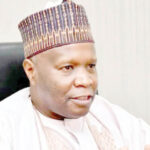Poor reading culture among students in primary and post primary schools is said to be the reason for mass failures in examination.
Presenting a paper titled ‘Reading: As a Tool For Empowering the Vulnerable’ at the reading promotion campaign of the National Library of Nigeria held at Sunkani, headquarters of Ardo Kola Local Government Area of Taraba State on Tuesday, a resource person, Mr. Clement Idi, said with poor reading culture among many youths, schools are going to record poor performance in both internal and external examinations.
He said students at both primary and secondary school levels would also fail to acquire extensive vocabulary relevant to various fields of specialisation.
He said the trend where majority of students in secondary schools opted for watching films and video than reading novels, textbooks and newspapers has serious consequence for academic performance of the young generation.
“At the secondary level, a student prefers book series widely called key points while their counterparts in institutions of higher learning prefer handout to books,” he noted
The trend, according to him, is encouraging indolence rather than hard work which if not reversed will further worsen quality of education in the country.
He suggested that parents should help reduce attachment to gadgets and information technology among their children and encourage them to embrace reading.
In his address, Head of the National Library in the state, Mr Yusuf Jimoh Yakubu, said the objective of the campaign was to encourage reading among Nigerians and promote increase of reading materials in the country as well as to identify major problems militating against reading and provide solutions.
Also speaking, the National Librarian, Prof Lenre Aina, said poor reading culture is a social phenomenon that cuts across all strata of Nigerian society and needs to be addressed urgently.
Prof Aina, represented by the Deputy Director at the National Library, Mrs Abdulazeez Mistura, said the focus of this year’s campaign will be on the vulnerable and the poor in semi-urban communities and custodial centres as well as Nigerian correctional services across the country.

 Join Daily Trust WhatsApp Community For Quick Access To News and Happenings Around You.
Join Daily Trust WhatsApp Community For Quick Access To News and Happenings Around You.


